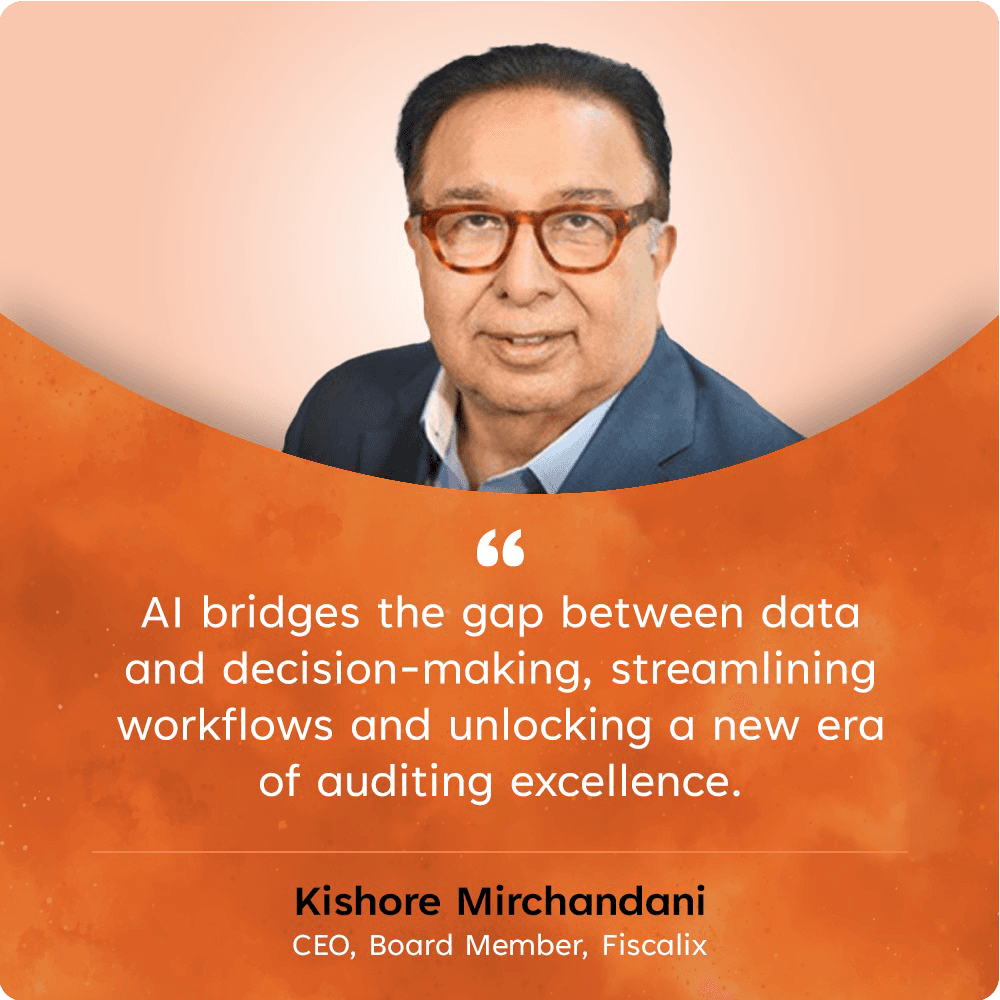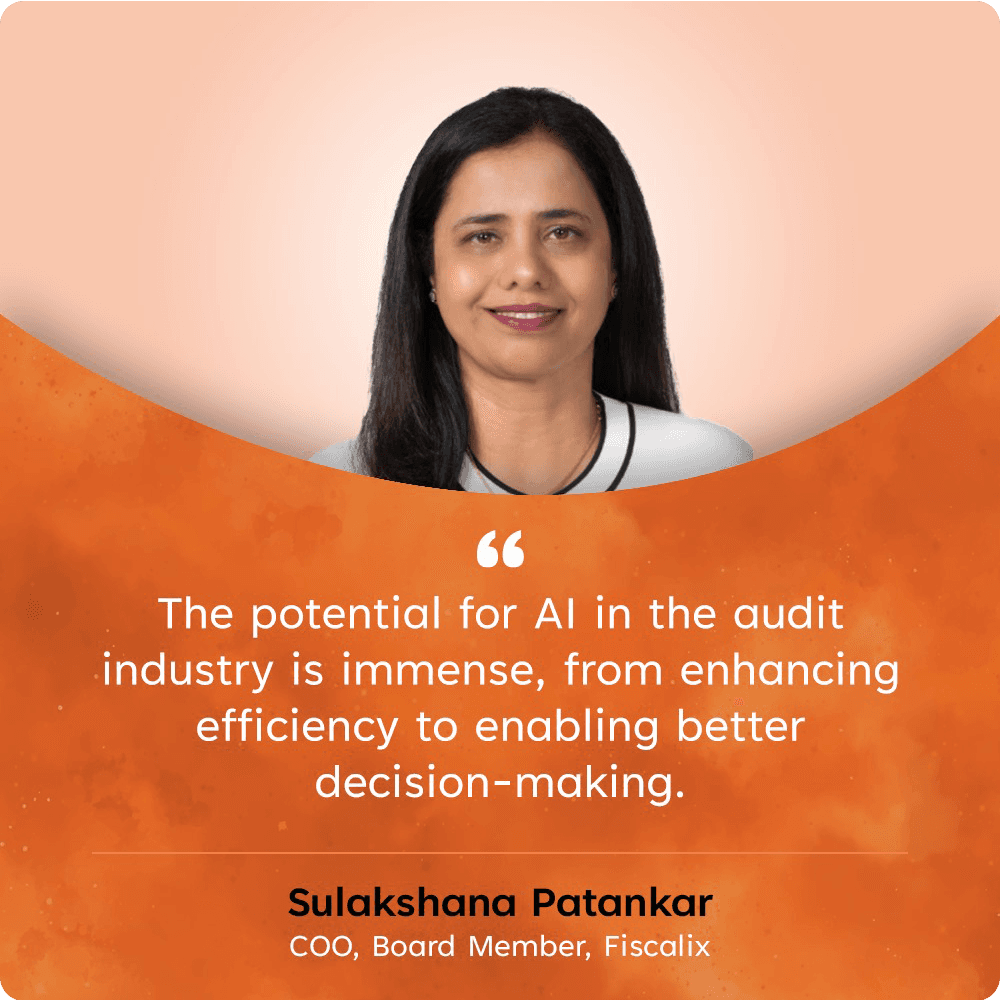Oct 29, 2024
6 Min

Fiscalix Team

Introduction:
As the audit industry grapples with increasing complexity and resource shortages, the integration of AI presents a transformative opportunity. Let’s explore the various ways AI can be deployed in auditing and the significant purposes it serves.
Current Challenges in Auditing Technology:
Despite advancements, many existing audit software solutions are merely point solutions—focusing on practice management or document management without integration. This fragmentation leads to cumbersome workflows, especially in an industry governed by strict regulations like those from the PCAOB and IRS. Auditors often handle thousands of files independently mostly on MS-Excel, making the process tedious and time-consuming.

Two major challenges stand out:
Handling Unstructured Data: Much of the data auditors deal with—like 8-K filings or business contracts—lacks a standard format, making manual processing necessary.
Rule-Based Limitations: Current tools primarily rely on deterministic rules, which don't apply to many aspects of the audit process which require an understanding of the situation and its ambiguities and options
Challenges and Considerations:
Generative AI offers promising solutions to these challenges. Here’s how it can be effectively deployed in auditing:
Processing Unstructured Information: Generative AI can pull in and synthesize data from various sources—like spreadsheets, PDFs, and unstructured documents—efficiently. For example, it can match information from disparate data points, simplifying the audit process.
Decision Support: AI can help auditors make informed decisions by analyzing data from multiple sources. It can assist in creating planning memos by for both financial and non-financial information.
Streamlining Workflows: By integrating various features into a seamless workflow, AI can ensure that the output from one process becomes the input for another, enhancing efficiency and reducing the risk of oversight as well as duplication of efforts.
Practical Applications of AI in Auditing:
Here are specific areas where AI can make a difference:
Client Onboarding: Automating background checks on key personnel can save significant time, allowing auditors to focus on risk assessment.
Audit Planning: Generative AI can analyze trends and summarize important aspects of financial statements, leading to more effective audit planning.
Execution and Reporting: AI can assist in document processing and create audit reports that are thorough and compliant with regulatory standards.
Bridging the Knowledge Gap:
While there’s enthusiasm about generative AI, many firms, especially smaller ones, face challenges in understanding and implementing these technologies. There's often a disconnect between excitement and practical experience. Firms with limited budgets may struggle to develop in-house tech teams, underscoring the need for user-friendly solutions that demonstrate clear productivity gains.

Conclusion:
The potential for AI in the audit industry is immense, from enhancing efficiency to enabling better decision-making. However, for firms to fully realize these benefits, there must be a focus on bridging the knowledge gap and creating integrated solutions that address the specific needs of the auditing process.
Call to Action:
As the industry evolves, we encourage auditors and firms to explore how AI can transform their practices. What challenges do you see in adopting AI, and how do you envision its role in the future of auditing? Share your thoughts in the comments!



